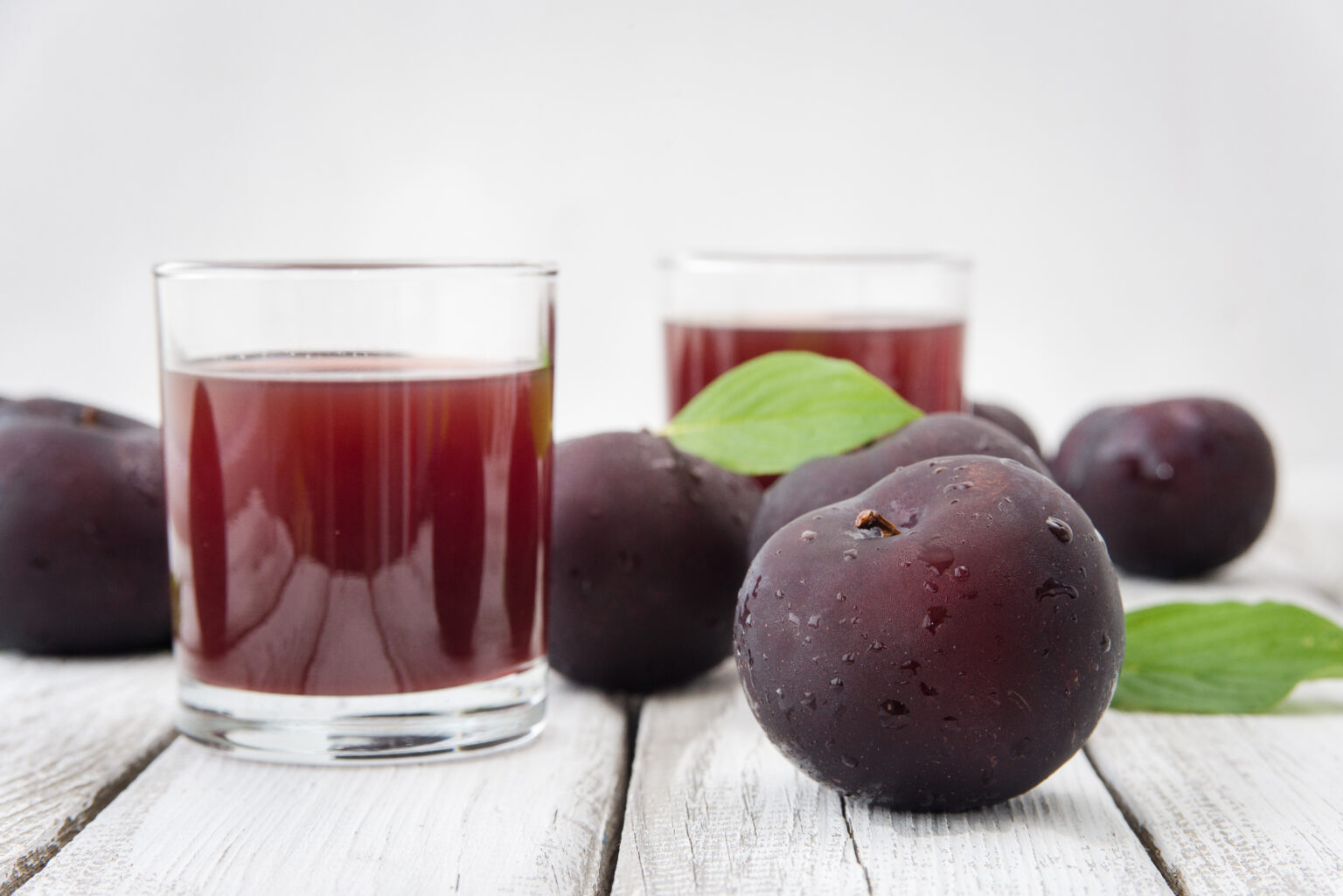If you’re looking for a healthy beverage that packs a punch of nutrients, look no further than prune juice. Despite its reputation as a remedy for constipation, prune juice has been dubbed a “nutritional elixir” due to its many health benefits and as a qualified nutritionist, I agree. Prunes, which are dried plums, have been enjoyed for thousands of years and are now available in juice form for easy consumption.
I will give you the insight on the many health benefits of prune juice, from its impressive nutrient profile to its potential to improve digestion and support heart health. You’ll also learn tips for buying and drinking prune juice, as well as who should avoid it. So, whether you’re a fan of this underrated beverage or you’re curious about its potential health benefits, keep reading to learn more.
Key Takeaways
- Prune juice is a nutrient-rich beverage that offers many health benefits.
- It may improve digestion, support heart health, and provide a variety of essential vitamins and minerals.
- When buying and drinking prune juice, look for options without added sugars
- It might not be appropriate for people with certain health conditions
Prune Juice Nutrition Facts
100% Prune Juice (3 ounces)
Prune juice is a good source of several essential nutrients. A 3-ounce serving of 100% prune juice contains 71 calories, 0.6 grams of protein, 17.5 grams of total carbohydrates, and 1 gram of fiber. It also contains 16.5 grams of sugar and no fat.
In addition to these macronutrients, prune juice also contains several micronutrients. A 3-ounce serving of 100% prune juice provides 0.8 milligrams of niacin (12% DV), 0.2 milligrams of vitamin B6 (15% DV), 1.2 milligrams of iron (7% DV), 14 milligrams of magnesium (4% DV), 0.07 milligrams of copper (8% DV), and 276 micrograms of potassium (9% DV).
It is important to note that the Daily Value (DV) percentages are based on the average adult needs for males and females without pre-existing conditions per the National Institutes of Health (NIH).
A lot of calorie counters and sugar fiends will looks at these stats and move straight on. Sometimes, you have to look at stats like this in context and include analysis of the wider benefits. If this is part of a healthy diet, don’t stress too much about the sugar and calories. Focus on the health benefits.
Health Benefits of Prune Juice
Prune juice is a nutritious beverage that can offer a range of health benefits. Here are some of the ways that drinking prune juice may be good for your health.
1. Supports Immune Health
Prune juice is rich in copper and plant compounds called polyphenols, which act as powerful antioxidants that protect your cells from damage. Copper is also an antioxidant that can help reduce inflammation throughout your body and support your immune system. By drinking prune juice, you can give your body the nutrients it needs to stay healthy and fight off infections.
2. Good for Gut Health
Prune juice is well-known for its ability to relieve constipation, but it also contains prebiotic fiber that can increase the beneficial bacteria in your colon. This can help support overall digestion and improve your gut health. Additionally, prune juice contains sorbitol, a natural laxative that can help regulate your bowel movements. Drinking prune juice regularly can help keep your digestive system running smoothly.
3. Promotes Heart Health
Prune juice may help support heart health by reducing LDL cholesterol levels and hypertension. The plant compounds in prune juice have been found to further reduce LDL levels, which may help prevent chronic diseases such as heart disease. Additionally, the potassium in prunes can help regulate blood pressure levels and heart rhythm.
4. Good for Your Eyes
Prune juice contains carotenoids like lutein and zeaxanthin, which can help protect the macula of your eyes. These plant compounds have been associated with a lower risk for eye diseases such as cataract, macular degeneration, and diabetic retinopathy. By drinking prune juice, you can help keep your eyes healthy and protect your vision.
5. Promotes Strong Bones
Prune juice is a good source of boron, a mineral that may play a role in preventing osteoporosis. Drinking prune juice can help ensure that you get the daily requirement of boron your body needs to maintain strong, healthy bones.
6. Could Support Those with Anemia
Prune juice contains iron and vitamin B6, two micronutrients that can help improve symptoms of anemia. These nutrients can help improve the quality and quantity of your red blood cells, which can help alleviate symptoms of microcytic anemia. Drinking prune juice can be a tasty way to get the nutrients your body needs to stay healthy.
So overall, prune juice is a nutritious beverage that can offer a range of health benefits. By drinking prune juice regularly, you can support your immune system, improve your gut health, protect your heart and eyes, promote strong bones, and aid in the treatment of anemia. It’s a bit of a wonder drink, isn’t it?
Who Should Avoid Prune Juice?
Prune juice is a nutritious drink that can offer many health benefits. However, there are some people who should use caution before consuming it. Here are some factors to consider:
- Digestive Issues: Prune juice can have stool-softening effects, which may cause gas, bloating, diarrhea, and other tummy troubles. If you are prone to these issues or are sensitive to sorbitol, it is recommended that you start slowly with prune juice.
- Metabolic Concerns: If you have type 2 diabetes, you should practice moderation with prune juice due to its higher sugar content. Opting for whole prunes with no added sugar is a better option as they are less concentrated in sugar and offer more fiber, which slows digestion and dulls the blood sugar response.
- Sulfite Allergies: Some prune juices may contain sulfites as a drying agent. If you have sulfite allergies, it is important to steer clear of prune juice or look for brands that advertise “sulfite-free” on the label.
- Chronic Kidney Disease: Prune juice has a high potassium content, which may be problematic for people with chronic kidney disease. If you think you might fit into this category, it is important to speak with your healthcare provider before adding prune juice to your routine.
In summary, while prune juice can be a healthy addition to your diet, it is important to consider your individual health concerns before consuming it regularly.
Buying and Drinking Tips
When shopping for prune juice, it’s important to choose brands that contain no added sugar and sulfites. Look for the term “100% juice” on the label, but “no added sugar” and “sulfite-free” are even better.
For optimal benefits, it’s recommended to drink about two to four ounces of prune juice per day. However, you can adjust the frequency of your prune juice intake based on your personal health goals and symptoms.
Prune juice can be enjoyed in various ways, not just by the glass. Try adding it to smoothies, sauces, marinades, or even porridge and baked goods as a natural sweetener.
Remember to always read the label carefully when buying prune juice and choose the brand that best fits your needs.
Key Facts to Remember
Prune juice is a nutrient-dense beverage that provides numerous health benefits, including aiding digestion and constipation. However, it is important to note that prune juice contains less fiber and a higher concentration of natural sugar than whole dried prunes. This could be a concern for individuals with metabolic issues or those monitoring their sugar intake.
Moderation is key when it comes to incorporating prune juice into a healthy lifestyle. It is important to remember that no single food can make you healthy, but rather a balanced diet with a variety of foods is essential for overall health and wellbeing. By adding prune juice to your diet in moderation, you can enjoy its nourishing benefits while still maintaining a balanced and healthy diet.









